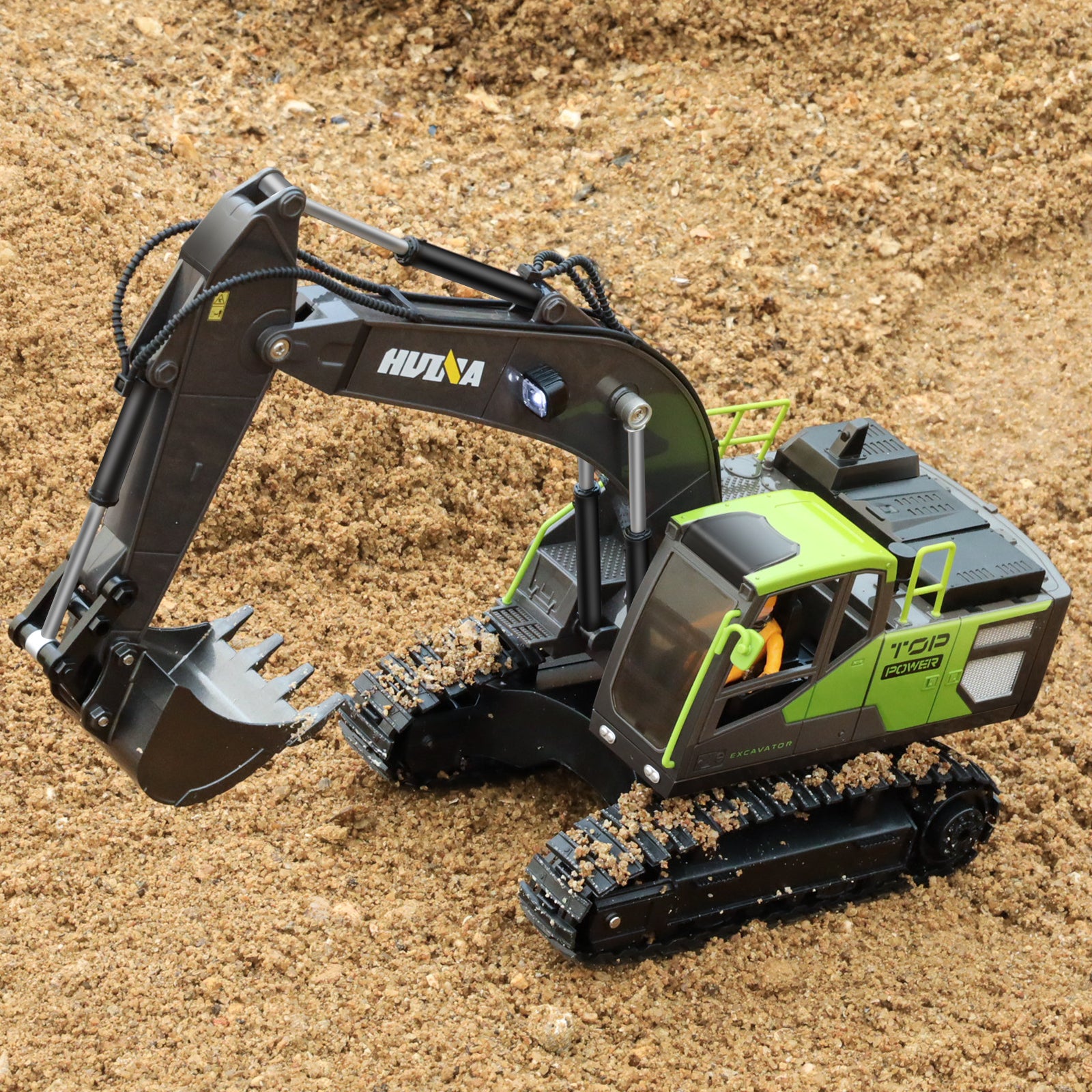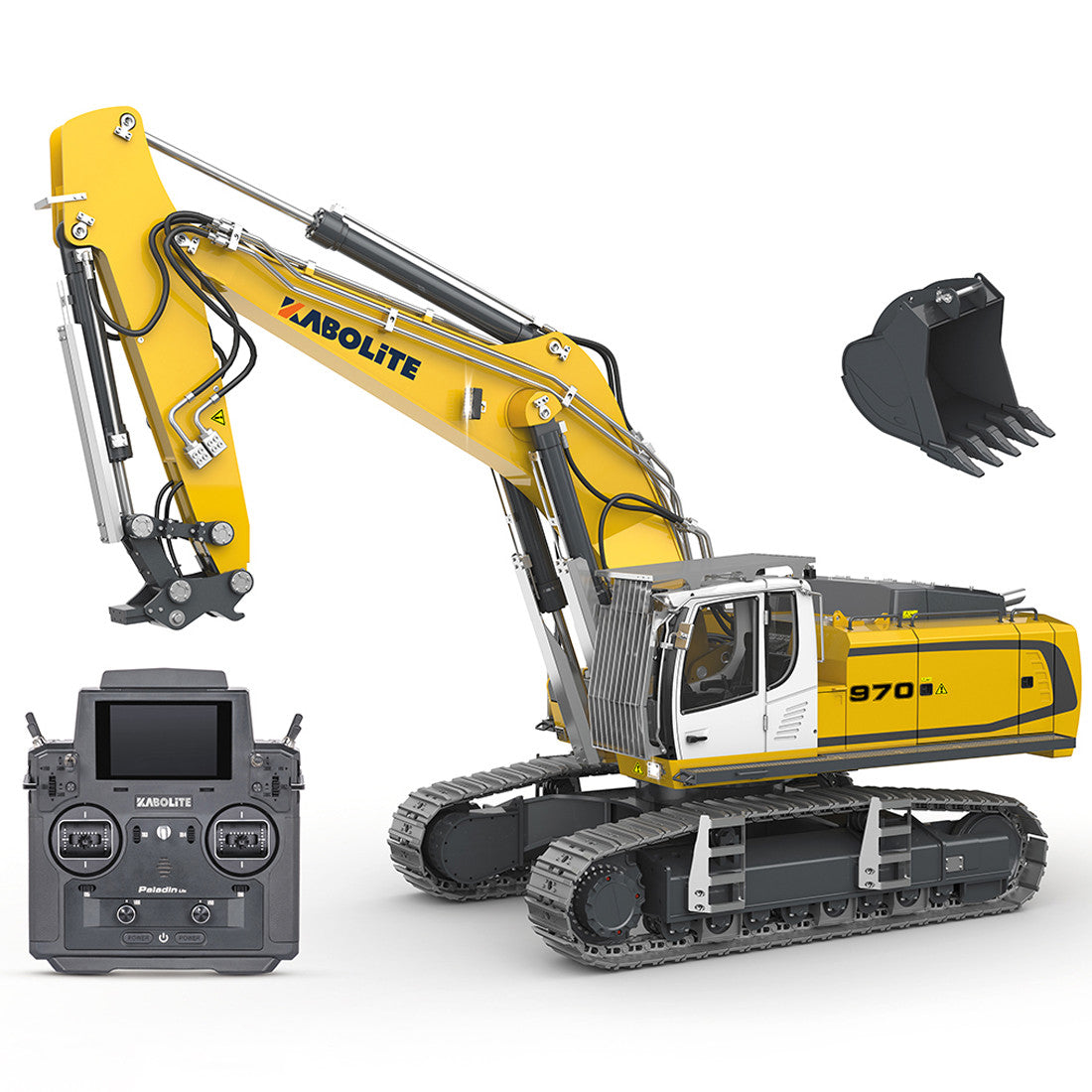Comprehending How Excavator Functions and Its Impact on Performance
Excavators play a crucial duty in building and mining operations, counting on a complicated interaction of hydraulic and mechanical systems. Their ability to carry out a selection of jobs pivots on both their layout and the technology integrated within. Understanding these components can significantly impact functional efficiency and productivity. As advancements proceed to improve the market, one have to consider just how these adjustments will certainly influence future techniques and performance.
The Fundamentals of Excavator Mechanics

The Function of Hydraulic Equipments in Excavators
At the heart of excavator procedure lies the hydraulic system, which plays an essential function in powering the device's features and activities. This system makes use of pressurized hydraulic liquid to transfer energy, allowing different actions such as moving, excavating, and training. By harnessing the concepts of hydraulics, excavators can execute jobs with remarkable accuracy and pressure, enhancing general operational efficiency.The hydraulic system includes vital elements, consisting of shutoffs, pumps, and cyndrical tubes, which collaborate to control the circulation and instructions of the fluid. When the driver engages the controls, the hydraulic fluid is routed to details cyndrical tubes, equating the operator's commands right into physical activity. This device permits for receptive and smooth activities, which are essential in building and excavation settings. double e volvo rc excavator. The effectiveness of the hydraulic system directly affects the productivity and versatility of the excavator, making it a vital element in modern-day excavation processes
Secret Parts of an Excavator
Understanding the key elements of an excavator is necessary for understanding how this powerful machine runs. An excavator contains several substantial aspects, consisting of the undercarriage, house, arm, boom, and container. The undercarriage offers stability and wheelchair, frequently including tracks or wheels to navigate numerous terrains. Your home has the engine and hydraulic systems, allowing the operator to regulate activity and power the device. The boom extends from your home, enabling vertical reach, while the arm connects to the bucket, promoting excavating and training operations.Additionally, the taxi houses the operator, geared up with controls for specific handling. Each of these elements plays an important duty in the excavator's overall performance, adding to its efficiency and effectiveness on building and construction websites. Understanding these components assists in maximizing and keeping excavator performance, ensuring tasks are finished securely and properly.
Accessory Flexibility and Its Advantages
Accessory flexibility is a vital aspect of excavators, enabling operators to switch between different devices tailored for certain tasks. This adaptability not only improves job effectiveness however likewise adds to cost-effectiveness by minimizing the requirement for multiple machines. Comprehending the different sorts of attachments readily available can substantially impact the general efficiency and functionality of an excavator on job websites.
Sorts of Attachments
While excavators are primarily identified for their digging capacities, their real convenience hinges on the wide array of accessories available. These accessories enhance the excavator's functionality, allowing it to perform various jobs past excavation. Usual accessories include containers (for digging and scooping), hydraulic thumbs (for realizing products), and augers (for drilling openings) Grapples are made use of for handling and moving particles, while rippers can separate tough surface areas. Various other specialized attachments, such as trenchers and rakes, enable excavators to adapt to certain task requirements. This variety not just increases the equipment's energy across different fields, consisting of construction, landscape design, and demolition, yet likewise allows drivers to customize their devices to fulfill specific job needs efficiently.
Increased Job Performance
Maximizing task performance is a key benefit of making use of various excavator attachments. Various accessories enable an excavator to perform several tasks without needing to change equipment, saving beneficial time and labor. Using a hydraulic hammer can break concrete while a container add-on can excavate soil, allowing click here for info a smooth process. This convenience lowers downtime related to equipment changes and boosts performance on-site. In addition, specialized add-ons improve accuracy in tasks such as grading or landscaping, resulting in higher quality outcomes. The ability to adapt to different job demands not only streamlines operations but also lessens the need for additional equipment, ensuring that tasks are completed swiftly and effectively. In general, add-on adaptability significantly adds to raised task effectiveness in excavation job.
Cost-Effectiveness and Flexibility
Cost-effectiveness is a significant advantage of using flexible excavator accessories. These add-ons enable a single excavator to perform numerous tasks, decreasing the need for added equipment and labor - double e volvo rc excavator. By switching in between pails, hammers, and grapples, drivers can deal with different projects, from digging to demolition, therefore maximizing tools application. This flexibility not just decreases operational costs yet additionally decreases downtime related to altering tools. In addition, the capability to tailor excavators with specialized accessories enhances performance, as they can successfully deal with varied jobs according to project needs. In conclusion, the mix of cost-effectiveness and adaptability in excavator attachments adds to improved functional efficiency and resource allocation in building and excavation jobs

Advanced Technology in Modern Excavators
Modern excavators are increasingly geared up with innovative innovation that transforms excavation processes. Automation streamlines procedures, while boosted gas effectiveness decreases functional expenses. Furthermore, smart control systems boost precision and safety, marking a significant advancement in excavation devices.
Automation in Excavation Processes
As excavation innovation evolves, automation has actually emerged as a critical part in enhancing effectiveness and precision on task websites. Modern excavators are outfitted with innovative automated systems that help with jobs such as grading, digging, and trenching with very little operator treatment. These systems use sensors, GPS, and device discovering algorithms to guarantee exact positioning and depth control, substantially decreasing the margin for mistake. In addition, automation permits drivers to concentrate on critical decision-making instead of hands-on controls, bring about enhanced performance in general. Such innovations not just streamline process yet additionally improve safety and security by reducing human mistake in complex operations. The combination of automation in excavation processes stands for a considerable development in building modern technology, driving the sector in the direction of better efficiency and effectiveness.
Improved Fuel Effectiveness
Improvements in modern technology have actually additionally caused substantial renovations in gas performance for modern excavators. Modern machines are outfitted with advanced engines that maximize power outcome while minimizing gas intake. These engines make use of cutting-edge burning technologies, such as turbocharging and direct fuel injection, to enhance efficiency and performance. Additionally, light-weight products in construction minimize overall weight, permitting less power expenditure throughout operation. The introduction of variable rate controls enables operators to readjust engine performance according to specific tasks, even more lessening fuel usage. Because of this, these enhancements not only lower functional costs but additionally add to environmental sustainability by lowering emissions. On the whole, boosted fuel effectiveness in excavators is a vital advancement that bolsters performance and economic viability in the building and construction industry.
Smart Control Solution
While drivers navigate progressively complex job websites, clever control systems in excavators have actually become vital devices for improving effectiveness and precision. These innovative modern technologies utilize formulas and sensing units to keep an eye on various specifications such as lots weight, surface problems, and functional performance. By automatically adjusting hydraulic features, wise systems optimize device efficiency, leading to enhanced efficiency and reduced wear on elements. Furthermore, operators take advantage of instinctive interfaces that supply real-time feedback and diagnostics, enabling informed decision-making. This integration of modern technology not only streamlines operations but likewise decreases human mistake, adding to more secure job environments. As the building sector proceeds to evolve, Get More Information smart control systems will play a crucial function in forming the future of excavator performance and efficiency.
Enhancing Functional Performance With Excavators
Excavators play an essential duty in improving operational effectiveness throughout numerous building and construction and excavation projects. Their versatility allows for multiple tasks, including excavating, product, and lifting handling, which enhances workflows and decreases the need for additional tools. With powerful hydraulic systems, excavators can do heavy-duty tasks with precision, substantially reducing the time needed to complete tasks. The integration of advanced modern technology, such as general practitioner and automated controls, additionally maximizes their procedure, enabling drivers to achieve better accuracy and decrease material waste. Furthermore, modern excavators are designed to eat much less fuel and minimize exhausts, contributing to both price financial savings and environmental sustainability. By utilizing excavators properly, construction groups can boost performance, satisfy job due dates, and improve general site management. This multifunctionality and efficiency make excavators indispensable devices in the contemporary construction landscape.
The Future of Excavators in Building and Mining Industries
As the construction and mining sectors develop, the future of excavators is positioned for significant improvement driven by technological development and transforming functional demands. Advancements in automation and man-made intelligence are improving excavator abilities, permitting improved accuracy and performance in operations. Self-governing excavators are arising, decreasing the need for human treatment and reducing the threat of accidents.Moreover, the combination of telematics and IoT innovation makes it possible for real-time tracking of read this maker efficiency and predictive upkeep, maximizing uptime. Environment-friendly styles, including hybrid and electrical versions, are acquiring traction, lining up with sustainability objectives within the industry.Additionally, making use of advanced products and lighter designs boosts fuel performance while preserving performance standards. As these trends development, excavators will certainly play a crucial function in meeting the raising needs for productivity and safety and security in building and mining, eventually changing functional landscapes.
Often Asked Inquiries
How Do Weather Influence Excavator Efficiency?

Weather conditions greatly influence excavator efficiency, as rainfall and mud can impede traction and security, while severe temperatures might influence hydraulic systems. Operators needs to adjust to these variables to assure ideal functionality and safety and security throughout procedures.
What Precaution Should Operators Follow While Making Use Of Excavators?
Security measures for excavator drivers include putting on suitable individual protective tools, carrying out pre-operation evaluations, guaranteeing appropriate interaction with ground workers, keeping a risk-free distance from above hazards, and sticking to established functional methods to stop crashes.
Exactly How Often Should Excavators Be Kept for Ideal Performance?
Excavators need to be preserved frequently to assure peak performance, normally every 250 operating hours or as defined by the producer. Regular checks enhance integrity, avoid unanticipated failures, and extend the lifespan of the devices.
What Is the Typical Life-span of an Excavator?
The typical life-span of an excavator generally varies from 10,000 to 15,000 hours of operation. Factors affecting longevity include maintenance techniques, running conditions, and the high quality of the device itself, impacting general performance and performance.

Can Excavators Operate Unequal Surface Successfully?
Excavators can run properly on unequal surface due to their articulated designs and adjustable tracks. These features allow them to maintain security and grip, allowing efficient operation in difficult atmospheres typically experienced in building and construction and landscape design tasks. Each of these parts plays an essential role in the excavator's overall capability, contributing to its performance and performance on construction websites. Optimizing task performance is a main advantage of making use of different excavator attachments. While drivers navigate increasingly complicated job websites, wise control systems in excavators have actually emerged as crucial devices for boosting effectiveness and accuracy. Excavators play a crucial function in enhancing functional performance throughout numerous construction and excavation tasks. Breakthroughs in automation and man-made intelligence are improving excavator capacities, enabling for improved precision and performance in procedures.